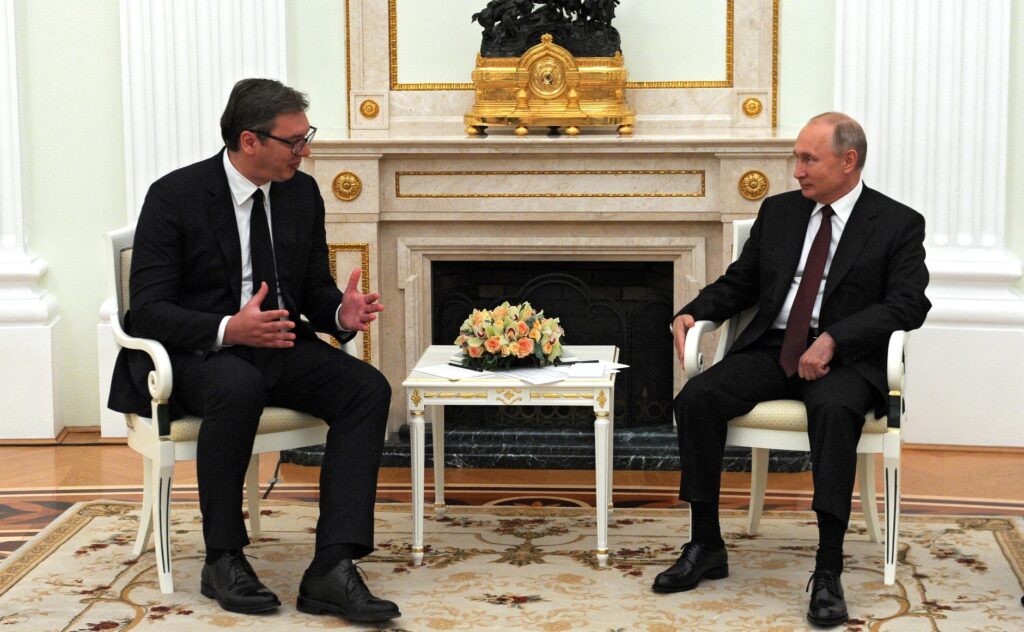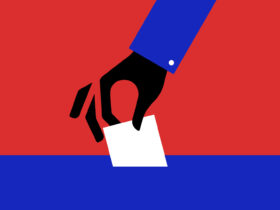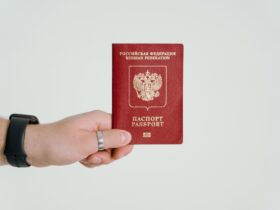Since President Vladimir Putin authorized “special military action” in Ukraine, most countries in the region were quick to condemn Russia’s actions. However, one major hold-out remains: Serbia.
Russia and Serbia’s friendly relations date back to 1999 with the breakup of Yugoslavia. They further developed in 2008, when Kosovo declared its independence from Serbia. Kosovo, as of March 2022, is recognized by 177 countries. This includes over half of UN member states and 80% of the EU and NATO. In support of Serbia, Russia refuses to do so, and they constantly veto motions related to Kosovo’s ascension as a recognized country.
Russia is now putting pressure on Serbia to return this act of goodwill. As the rest of the world slams Russia with sanctions, Serbia continues to be a key customer for critical Russian industries, notably energy: Serbia imports roughly 91% of the natural gas it consumes, with almost all of that being from Gazprom, a majority of state-owned energy company. What’s more, Serbia is doubling down, attempting to secure a new deal with Gazprom within the coming months.
Leading up to Russia’s invasion of Ukraine, Serbia has been trying to, in a sense, play both sides. Serbia applied for EU membership in 2009. Since then, it has attempted to strengthen its relationship with its members while also doing so with Russia and China. Since 2017, President Aleksandar Vučić has orchestrated this balancing act. As Vučić’s chance for reelection on April 3 grows closer, he continues to play to Serbia’s diplomatic and ethnic ties with Russia. Reelection would certainly mean more of the same.
Russia’s actions have further alienated it from many other countries, mainly by way of heavy sanctions. This has caused it to lean heavily on its few allies, including Serbia. With strong external pressure to denounce Russia and Russia’s push for support during their time of need, Serbia is essentially being pulled thin in the middle between its pro- and anti-Russian allies.
But there may come a time very soon when Serbia is forced to pick a side.
If this were the case, Serbia’s support would more likely fall completely toward Russia than away from it. Russia’s early support of Serbia has not been lost on the country’s government or its citizens. Despite the EU-wide flight ban, Serbia’s initial response to Russia’s invasion of Ukraine was to increase its national airline’s air traffic to Russia. While this has been somewhat ruled back due to criticism from the EU, AirSerbia still offers one flight to Moscow a day. This has stood as a loophole, allowing Russians to flee to the EU through Serbia.
Serbia has had long-standing disputes with several of its Balkan neighbors, but they reached a boiling point during the Yugoslav Wars from 1991 to 2001, where the different ethnic groups fought for territory. Following the war, territorial lines were drawn, but they were done in a manner that poorly reflected the spread of the different ethnicities. The area of Kosovo was majority ethnically Albanian but within Serbian borders, and these tensions ultimately resulted in Serbia’s ethnic cleansing of the majority Albanians. Since then, Albanian and Kosovan relations with Serbia have remained poor.
As war rages in Ukraine, many believe Putin is also using the opportunity to exploit pre-existing tensions to increase Russia’s influence in Serbia. Albania is a member of NATO, and Kosovo is on a path to membership. When comparing this situation to the circumstances surrounding Russia’s invasion of Ukraine, many similarities are eerily evident. Albania is a member of NATO, and Serbia is mostly supporting Russia, escalating the bad blood that already exists between the two countries. Current circumstances have caused Kosovo to press even harder for a quicker membership to protect its sovereignty.
Given Russia’s current attempts to further its influence in Serbia, membership in NATO for Kosovo would have massive implications for Serbia and the greater region. For one, this would further increase Kosovo’s legitimacy as an independent state. It would also more clearly define the border between NATO and Russia’s sphere of influence. Beyond this, just as Russia interpreted Ukraine’s attempt to join NATO as an act of aggression, pro-Russian Serbia could interpret Kosovo joining NATO in a similar fashion.
On the other hand, joining NATO could compel Kosovo to take more aggressive action toward separation from Serbia. If one of those two things occurs, or both, it could spell chaos for the Balkans. The result could be another proxy conflict between Russia and a multilateral organization.
While this is a real possibility, some measures could prevent this from happening. Serbia’s admittance into the EU could help ease tensions with neighboring countries while simultaneously distancing it from Russia. In this case, Russia would likely struggle to maintain its influence in the area. Admittance into the EU would also disincentivize aggressive action from Kosovo or Serbia if Kosovo were admitted into NATO.
Another factor that could influence Serbia’s relationship with Russia is the duration and outcome of Russia’s invasion of Ukraine. With a severely crippled economy, Russia’s value as an ally would be significantly lowered. This could again cause Serbia to sway away from Russia and into the EU. However, such a move is also dependent on the citizens of Serbia, who have, for the most part, voiced strong support for Russia’s actions concerning Ukraine.
Regardless of the ultimate outcome, Russia’s push into Ukraine has already impacted the Balkans. While only time will tell, the already tense region could see sweeping changes in the near future.







